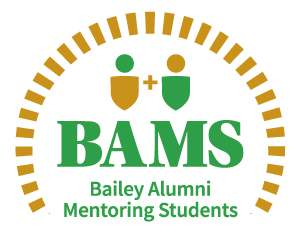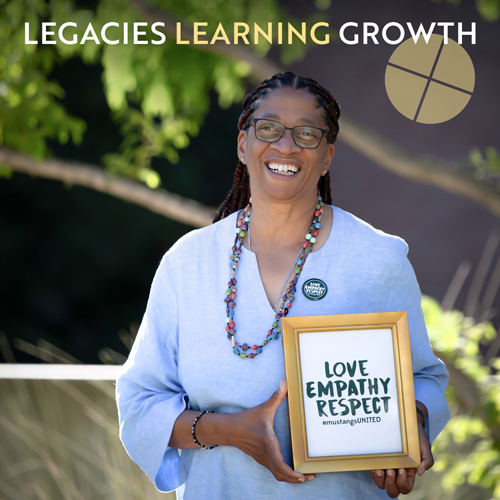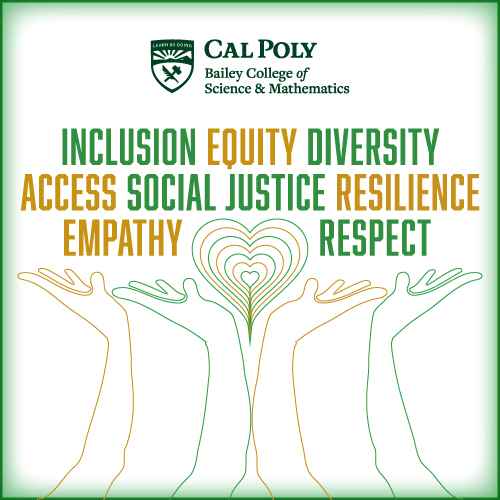Three New BCSM Degree Programs Offer Exciting Student Opportunities
By Angelina Benyamin Rodriguez and Nick Wilson
Three new degree programs established in the Bailey College of Science and Mathematics offer students opportunities to expand their skills and better prepare for future careers.
Each of the offerings — in education, mathematics and statistics — are designed and planned with current best practices and cutting-edge academic coursework in mind.
“These new programs offer our students a chance to pursue pathways that will help them contribute to society and make a difference, whether our students go into academia or industry,” said Dean Wendt, dean of the Bailey College of Science and Mathematics. “We continue to strive to prepare our students for the challenges and opportunities they’ll be presented with in their careers with the mission of doing good work and making positive impact.”
The new CSM programs are the following:
Equity in Education
A new minor degree program launched in the 2022-2023 academic year examines education through a structural lens.
The School of Education’s new Equity in Education Minor focuses on the historical, philosophical, and ethical foundations of education.
The new minor is open to all majors, except for Liberal Studies, which already offers a similar curriculum. Students can choose from three different pathways which emphasize either K-12 education, educational studies, or social justice and critical pedagogy. Each pathway will include School of Education and ethnic studies coursework.
Second-year English major and future high school English teacher, Kendall Taylor, hopes this new minor will help him influence his students’ lives in the future.
“Courses that have an emphasis on diversity, equity and inclusion have reinforced concepts for me and allowed me to see things through a different lens,” said Taylor.
And the degree offers opportunities for hands-on practice. One of Taylor’s classes, Children’s Learning and Development in Educational Settings, allowed him to practice public speaking and model new material in groups.
Kaylie Kwan, a biological sciences major, is also pursuing the new minor. She has been a teaching assistant for math and science and plans to incorporate some aspects of education into her future career as a veterinarian.
“Having an Equity in Education (minor) degree is really important to me, especially being a person of color at a PWI (predominantly white institution),” Kwan said. “Just being able to learn about how identity plays a role in education is so valuable.”
Data shows that teachers of color are vastly underrepresented in California schools, according to WestEd, a nonprofit organization that gathers educational data. In the 2018-2019 school year, data from K-12 public schools showed 77.4% of students, while just 39.1% of teachers, in the state were people of color.
“We’re thinking about how we can get our teaching workforce in K-12 and other areas of education to reflect the population of California,” said Briana Ronan, Cal Poly associate professor in the School of Education.
Similarly, history professor and program advisor Joel Orth, said he hopes the new minor will support future educators and encourage them throughout their time at Cal Poly.
With this new Equity in Education minor students like Taylor and Kwan will be given opportunities to enhance their teaching skills and make positive changes within the education field.
“This is something that I was deprived of in my education, so the very notion of an academic minor that prioritizes this as its ultimate outcome is something that I would want to take on immediately so I can be the best teacher I can be,” Taylor said.
Specialization in Applied Math
Students in the Masters in Mathematics are now being offered the chance to apply their undergraduate education and further their career in an ever-growing industry.
The new Specialization in Applied Mathematics is now accepting applications through April 1 in 2023 with future enrollment scheduling to come.
The program focuses on advanced areas of data analysis, data science, mathematical biology and dynamical systems modeling in order to prepare students for a successful career.
“This new specialization also exemplifies Cal Poly’s Learn by Doing philosophy by offering students the chance for college-level teaching experience, paid summer internships and research,” said Math Professor Joyce Lin, the program’s applied math graduate coordinator.
In addition to these opportunities, the two-year program (with a blended option to graduate in one year) offers students the benefit of a low faculty-to-student ratio. Through this, students are able to engage with faculty on research through conference or workshop participation.
Furthermore, the mathematics master’s degree program here at Cal Poly has demonstrated high levels of placement for students preparing to enter industry, community college teaching, and PhD programs, Lin said.
PhD candidates will gain significant teaching experience that will make for a successful application to top programs, Lin added.
“The Masters in Mathematics program is a community that is deeply committed to helping their students,” Lin said. This community encourages them to apply their classroom knowledge to the real world, and the new Specialization in Applied Mathematics can offer them strategies to do so.
Statistics Masters
Students interested in careers in statistics and data analysis can enroll in the new Master of Science in Statistics.
Their curriculum contains coursework that explores both the conceptual and methodological foundations of statistics. Applications are open for students with an undergraduate major or minor in statistics, who are looking to advance their education.
This new program is expected to launch in Spring for current undergraduates and will be open to external students in Fall 2023.
Their program learning outcomes describe the study of various aspects of statistics including: writing code for statistical applications, collaborating with researchers and clients, organizing analytical results, and communicating them effectively.
Courses within the program allow students to use different methods of gathering data and become proficient at using software for statistical computations.
Potential career pathways include industrial, environmental analytics and biostatistics — even sports analytics. Graduates benefit from a program specifically designed for an in-depth look into the world of statistics and various applications of the discipline.




